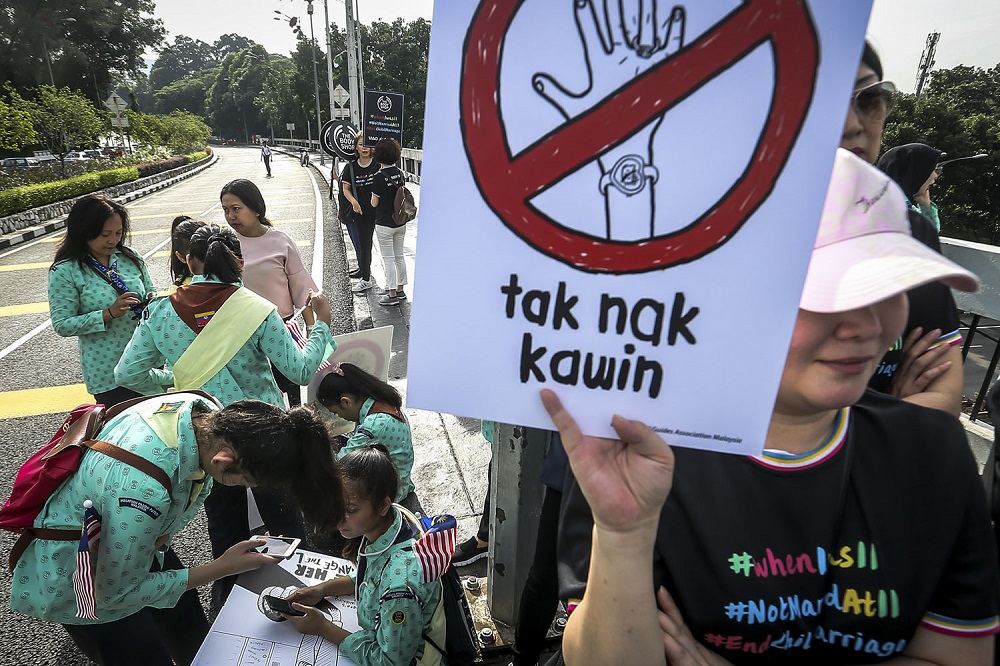KUALA LUMPUR, March 9 — Malaysia is committed to addressing child marriage as part of efforts to meet at least eight of the Sustainable Development Goals (SDGs) relating to poverty, food security and health, said Women, Family and Community Development Minister Datuk Seri Rina Harun.
She said Malaysia’s commitment to the SDG Goal 5 (Achieve Gender Equality and Empower All Women and Girls) refers to eliminating all harmful practices, including a child, early and forced marriage.
“Malaysia is committed to addressing child marriage, as seen in the ratification of the United Nations Convention on the Elimination of All Forms of Discrimination against Women (Cedaw) in 1995 and the subsequent removal of the reservation to Article 16(2) about child marriage in 2010.
“The Malaysian government also ratified the United Nations Convention on the Rights of the Child (CRC) in 1995, in which we committed under Article 24(3), to take all effective and appropriate measures with a view to abolishing traditional practices prejudicial to the health of the children,” she said.
Rina said this in her opening remarks during online launch of the United Nations International Children's Fund (Unicef)’s Advocacy Brief entitled ‘Towards Ending Child Marriage’ here, today.
She said in Malaysia, an average of 1,500 children, regardless of racial and religious background, are involved in child marriages and this practice happens in both urban and rural areas; Muslim and non-Muslims, even among the Orang Asli community as well as migrant and refugee communities.
Due to this, the government has previously introduced a five-year National Strategy Plan in Handling the Causes of Child Marriage last year, containing short, medium and long-term actions, involving government agencies, civil society and communities from 2020 to 2025.
“Both the National Strategy Plan and the Advocacy Brief recognise that the enactment of laws alone is insufficient to combat child marriage effectively, and should be supplemented with a comprehensive set of measures to facilitate their implementation and enforcement, along with a follow-up, monitoring and evaluation of the results achieved.
“Today’s launch provides an opportunity for the government and all stakeholders to renew our commitment to addressing child marriage together through the implementation of the National Strategy Plan and other complementary efforts,” she said.
Meanwhile, Unicef Representative to Malaysia and Special Representative to Brunei Darussalam Dr Rashed Mustafa Sarwar said the National Strategy Plan in Handling the Causes of Child Marriage, launched in January last year was a positive indication of Malaysian government’s commitment in addressing the issue.
The advocacy brief launched today outlined recommendations for the way forward in nine key areas in particular, legal reforms; centrality of data; addressing social and cultural norms, and capacity development; sexual and reproductive health education; specific girl empowerment programmes and engaging men and boys. — Bernama



















